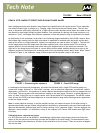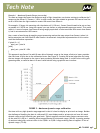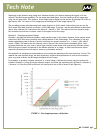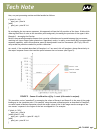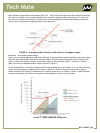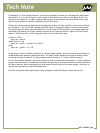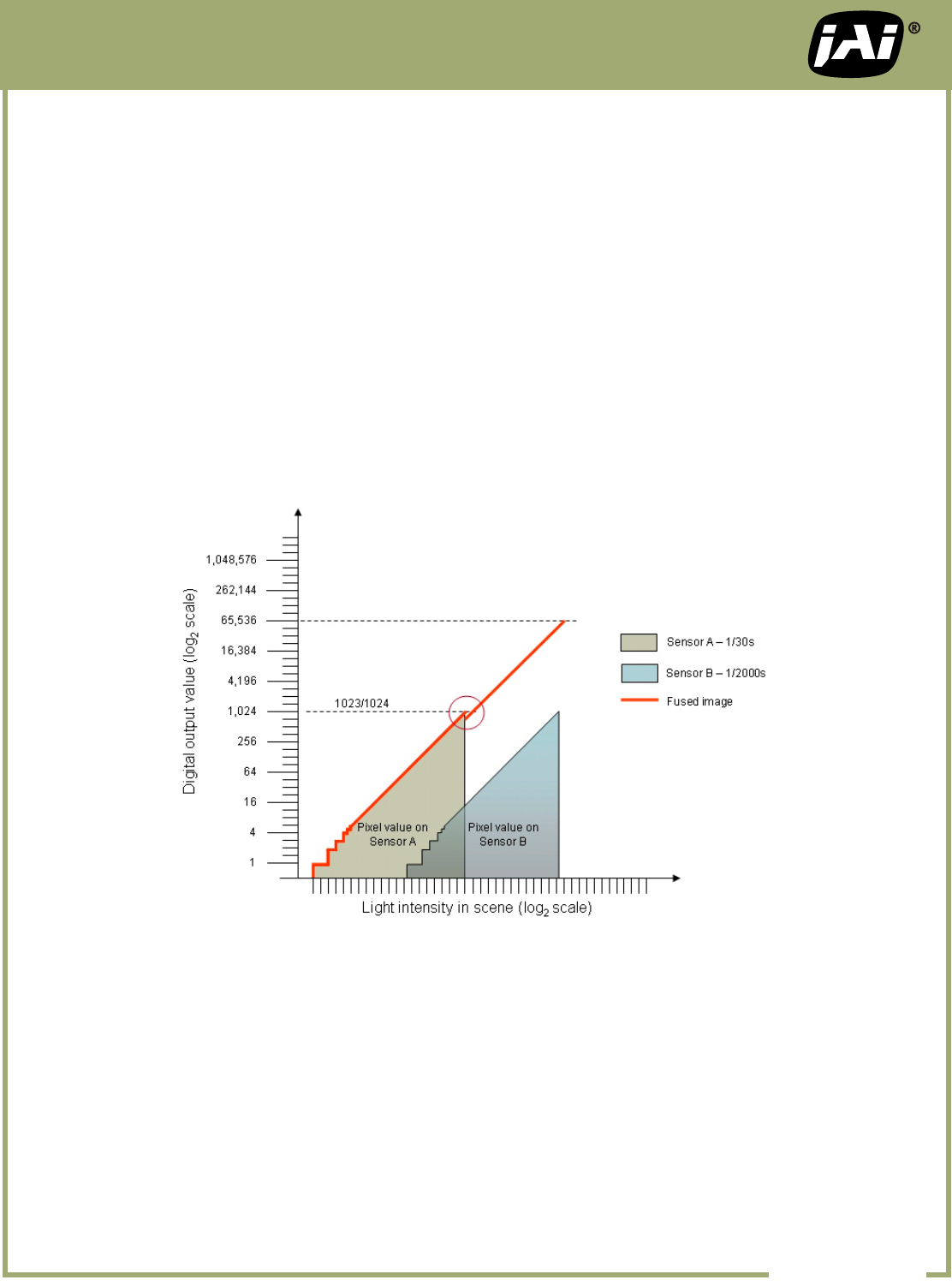
Tech Note
2
Now, our post processing routine could be handled as follows:
if (pixel B < 16){
pixel_out = pixel A
}else{
pixel_out = pixel B * 64
}
By overlapping the two sensor responses, this approach utilizes the full precision of the lower 10-bits while
reducing the effect of noise at the transition point and greatly increasing the precision of the upper 6-bits.
Example 3 – Averaging the Overlap
Both of the preceding examples assume that a precise calibration can be made between the two sensors,
resulting in a linear output (when plotted on a logarithmic scale). In reality, even the AD-081’s programmable
exposure capability, which allows shutter speed to be adjusted in one-line increments (42.07 µs), will still
not provide the precision needed for perfect calibration.
As a result, if the methods described in Examples 1 or 2 are used, this will produce a sharp discontinuity in
the output response line at the transition point between the two sensors (see Figure 5).
FIGURE 5 – Sensor B calibration off by 1 count (64 counts in output)
This transition can be “smoothed” by averaging the values of Sensor A and Sensor B in the area of the graph
leading up to the transition point. For example, using the same calibration point as described in Example 2,
we could create a Boolean expression where the output value of the 16-bit image uses the average of the
two sensors’ response in the region of the last overlapped bit. For example:
if (pixel A < 512){
pixel_out = pixel A
}elseif (pixel B < 16){
pixel_out = (pixel A + (pixel B * 64))/2
}else{
pixel_out = pixel B * 64
}
NO. TN-0902 pg 4



